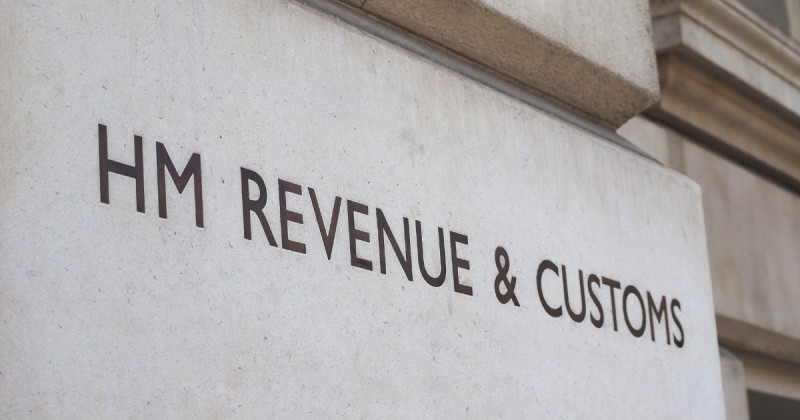Hitting low-earners with tax penalties shows just how outdated HMRC is

Earlier this week, it emerged that HMRC has issued fines to over 180,000 low earners who had failed to file a tax return. You may shrug your shoulders at this news (reported here), and think – with some justification – that HMRC is entitled, even obligated, to enforce these deadlines and that those who fail to file on time should expect a penalty.
Here’s the thing though. These taxpayers didn’t actually owe any tax. They had earnt less than the personal allowance of £12,500, and in some cases they hadn’t earnt anything at all, writes Andy Chamberlain, director of policy at The Association of Independent Professionals and the Self-Employed.
Something systematic is going on…
It may surprise some FreelanceUK readers to learn that even if you haven’t earned income outside of PAYE (which is taxed at source), you must still submit a tax return, if in previous years you did have income to declare and you haven’t told HMRC that you don’t anymore.
Nevertheless, those are the HMRC rules as they stand. It seems though that a great number of people didn’t understand that, or simply weren’t aware of it. And the fact there are so many in this position suggests this isn’t just one or two careless individuals – there is something more systemic going on which is catching out thousands who aren’t even avoiding paying their tax.
Much of what we know here is thanks to Dan Neidle, founder of campaign group Tax Policy Associates (TPA). The group has been going for about a year now and was behind the story that led to the sacking of then Conservative Party chair Nadhim Zahawi in January, due to him failing to declare an HMRC investigation into his tax affairs.
Neidle’s research reveals that “there is a significant population of self-assessment ‘taxpayers’ who are being required to complete an income tax self-assessment, are charged a late submission penalty, but turn out to have no tax to pay.”
The TPA reflects: “It is unclear why that is happening at so large a scale.”
Our tax system hasn’t kept up with the pace of work
Well, our organisation’s view as the UK’s freelance trade body is that this is another symptom of a tax system which hasn’t kept pace with the changing world of work.
Remember, the UK tax system is built around employers and employees. As people earn, a portion of their earnings are deducted by their employer and paid directly to HMRC.
The taxman loves this system – he gets the tax without having to do an awful lot of work to get it!
Self-employment is now in more individuals’ lives
And it is a system that worked very well when very few people earnt money outside of their main employment. The problem is that, increasingly, people are looking to work on a freelance basis or in some self-employed capacity – so without employers, or often with employers but with a freelance side-hustle. Many people now want to flip between employment and freelancing (and vice versa) mid-year.
This trend towards freelance and independent work is likely to have been exacerbated in the last few years, which have been extraordinarily tumultuous for one-person businesses. The pandemic took its toll on our lives and our livelihoods. Most employments survived -- with the help of the furlough scheme, and some self-employed businesses scraped by with the help of the Self-Employment Income Support Scheme, but hundreds of thousands of sole trader freelancers couldn’t access SEISS grants as they didn’t meet the arbitrary qualifying criteria.
Missing: 700,000 sole traders
Over the course of 2020 and 2021, we lost around 700,000 self-employed businesses. A population which had until then been steadily, indeed rapidly, growing. Where did these individuals go? No one quite knows, but it is certain that many would have eventually found employment and this could be why so many failed to file a tax return – they thought they didn’t need to.
A rethink is indeed needed, and needed now
Thousands of individuals who were working as freelancers at the start of the coronavirus pandemic (and were therefore submitting annual self-assessment tax returns) were forced to find alternative means of earning a living. The relative safety of employment will have no doubt appeared attractive to many as the job market opened up when the lockdowns eased. Now these same individuals were PAYE – they were paying tax automatically, so they didn’t need to file a return, or so they, perhaps, thought.
The TPA is calling for a rethink on this policy – and we at IPSE agree.
Fairness, communication, and in time for summer -- a closed self-assessment helpline
No one should have to pay an HMRC penalty for late filing which is greater than the amount of tax they owe. We also think there has been a clear breakdown in communication here. If these ‘taxpayers’ have a statutory duty to file a return, even a nil return, HMRC must get better at communicating this.
Arguably, HMRC’s decision to close its self-assessment helplines over the summer is hardly going to help with this. More broadly, government must start to understand that the world of work is changing. It’s much more fluid than it’s ever been and as people move between different employment statuses, they will need help with tax – and for that matter, benefits and pensions and childcare too.
Final thought
Rather than slapping fines on people who can ill afford to pay them simply because they didn’t adhere to outdated systems, government should reform those systems to ensure they are fit-for-purpose in our increasingly freelance, modern world of work.



Comment
Log in or create your account to react to the article.